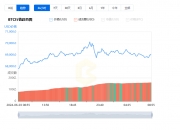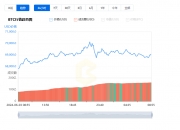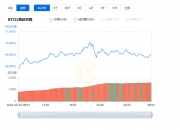在科技日新月异的时代,数字货币的崛起犹如一场金融革命,其中比特币作为“元老级”加密货币,以其独特的区块链技术与去中心化特性,引发了全球投资者的关注与热议。然而,对于普罗大众而言,一个萦绕心头的问题始终挥之不去:“个人买卖比特币合法吗?”今天,我们就来揭开这个谜团,以通俗易懂的语言,详述比特币交易的法律边界,让您在投资浪潮中稳握航舵。
In an era of rapidly changing science and technology, the rise of digital money is like a financial revolution, in which Bitcoin, as a “pension-class” encrypted currency, with its unique block-chain technology and de-centralized character, has generated interest and enthusiasm among investors around the globe. Yet, for the general public, a lingering question remains: “Is it legal to buy and sell bitcoin?” Today, we have come to unmask the enigma, in plain language, detailing the legal boundaries of Bitcoin transactions and allowing you to hold the ship in a wave of investment.
1. 法律态度多元:全球范围内,各国对个人买卖比特币的合法性看法大相径庭。有的国家如日本、瑞士等,已将比特币视为合法支付手段,积极引导并监管其发展;而另一些国家如中国、土耳其,则明令禁止金融机构参与加密货币交易,对个人行为虽未全面封杀,但态度谨慎。
1. There is a diversity of legal attitudes: globally, countries have very different views on the legality of the purchase and sale of bitcoin by individuals. Some countries, such as Japan, Switzerland, have seen bitcoin as a legitimate means of payment, actively guiding and regulating its development, while others, such as China and Turkey, have explicitly prohibited financial institutions from engaging in encrypted currency transactions and have been cautious about individuals'conduct, although not completely blocked.
2. 地方法规影响:即使在同一国家内,各地区对待比特币的态度也可能存在差异。例如美国,联邦政府并未明确禁止比特币交易,但各州对此有独立的法规解释和执行力度,投资者需关注所在地的具体规定。
2. Impact of local regulations: Even within the same country, there may be differences in the treatment of Bitcoin in different regions. For example, in the United States, the federal Government does not explicitly prohibit Bitcoin transactions, but states have independent statutory interpretations and enforcements, and investors need to be concerned with the specific location requirements.
3. 法规动态变化:数字货币法规尚处于快速演变阶段,政策风向可能随时转向。因此,无论是比特币新手还是资深玩家,定期关注相关法律法规更新,确保自身行为始终合规,是投资比特币的必备功课。
3. Changes in regulations: Digital currency regulations are still evolving rapidly and the policy wind may be shifting at any time. Thus, both the new Bitcoins and the senior players regularly follow up on the updating of relevant laws and regulations to ensure that their behaviour remains consistent and that they are required to invest in bitcoins.
1. 税务属性明确:虽然某些国家尚未将比特币定义为法定货币,但大多数已将其视为财产或资产,进行买卖交易时涉及资本利得税。这意味着,无论您在比特币交易中盈利与否,都可能需要向税务机关申报并缴纳相应税费。
1. Tax attributes are clear: while some countries have not defined Bitcoin as a legal currency, most of them consider it as property or assets and involve a capital gain tax when carrying out a transaction. This means that you may have to declare and pay a corresponding tax to the tax authorities, regardless of whether you have made a profit in the Bitcoin transaction or not.
2. 合规交易平台选择:为了便于报税并降低法律风险,投资者应选择在合规、受监管的交易所进行比特币买卖。这些平台通常会提供交易记录,协助用户完成税务申报,避免因偷税漏税而触犯法律。
2. Options for compliance trading platforms: In order to facilitate tax reporting and reduce legal risk, investors should choose to buy and sell bitcoin on a compliant, regulated exchange.
3. 咨询专业人士:面对复杂的税收规则,尤其是跨国交易情况,咨询会计师或税务顾问显得尤为重要。他们能帮助您精准解读相关规定,合理规划交易策略,确保在追逐财富增值的同时,不掉入法律陷阱。
Consultancy professionals: In the face of complex tax rules, especially in cases of cross-border transactions, consulting accountants or tax consultants is particularly important.
1. 反洗钱法规严苛:全球各地均强化了对加密货币的反洗钱(AML)及反恐怖融资(CTF)监管。许多国家要求交易平台进行严格的用户身份验证(KYC),确保交易者并非利用比特币进行非法活动。
1. Anti-money-laundering legislation is stringent: anti-money-laundering (AML) and anti-terrorist financing (CTF) controls of encrypted currency have been strengthened worldwide. Many countries require strict user identification (KYC) of trading platforms to ensure that traders do not use Bitcoin for illicit activities.
2. 交易限额与报告义务:部分国家和地区还设置了比特币交易限额,超过限额的交易需履行特定报告义务。投资者在进行大额交易前,务必了解并遵守相关规定,以免无意间触及法律红线。
2. Transaction limits and reporting obligations: Some countries and territories also have bitcoin limits in place, and transactions in excess of the limits are subject to specific reporting obligations.
3. 遵守交易禁令:某些国家对特定国家或地区实施经济制裁,禁止与其进行包括比特币在内的任何交易。投资者在进行跨境交易时,必须核查对方是否属于被制裁对象,避免无意识地违反国际法。
3. Compliance with the trade ban: Some countries impose economic sanctions on a particular country or region, prohibiting any transaction with it, including Bitcoin.
小编建议:
Under-Secretary-General's recommendations:
个人买卖比特币是否合法,答案并非非黑即白,而是取决于所在国家及地区的具体法律法规。在投身比特币投资热潮的同时,每一位参与者都应保持警惕,密切关注政策动向,依法纳税,严格遵守反洗钱规定,借助专业力量规避法律风险。如此,方能在数字货币的星辰大海中畅游无阻,尽享投资乐趣,又不失法律底线的保驾护航。
The answer is not black or white, but rather the specific laws and regulations of the country or region in which they are located. While investing in Bitcoin, each participant should be vigilant, pay taxes in accordance with the law, strictly comply with anti-money-laundering regulations, and use his expertise to avoid legal risks.
注册有任何问题请添加 微信:MVIP619 拉你进入群

打开微信扫一扫
添加客服
进入交流群



















发表评论